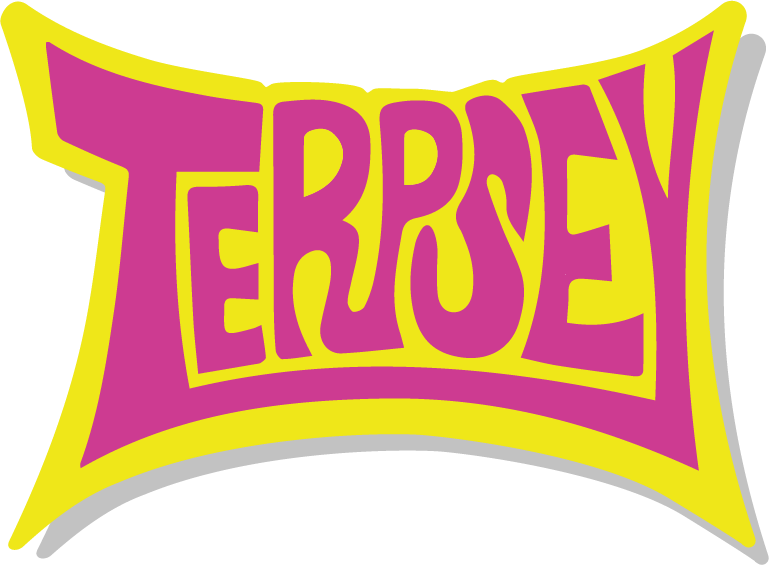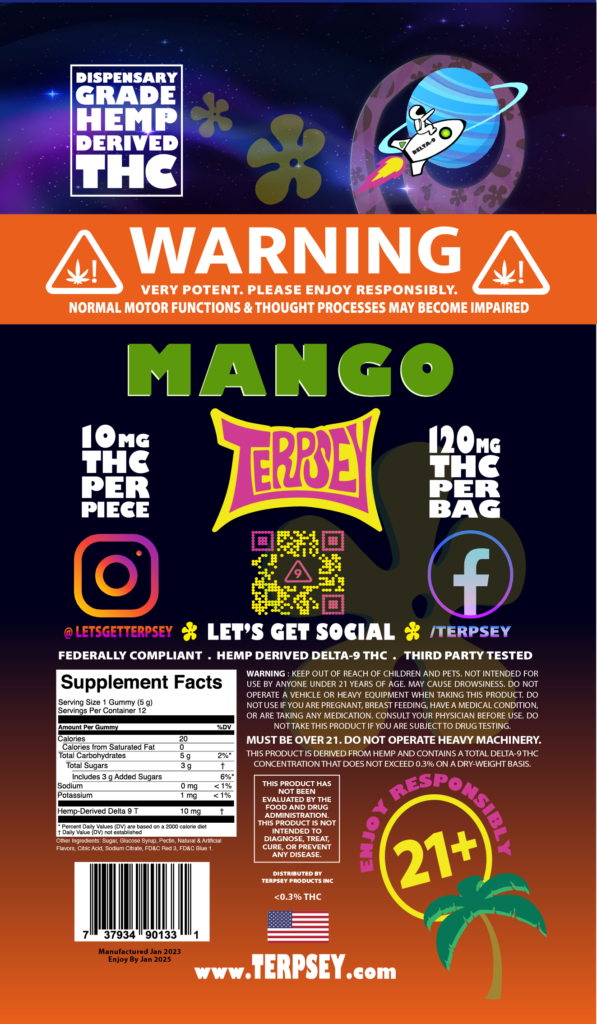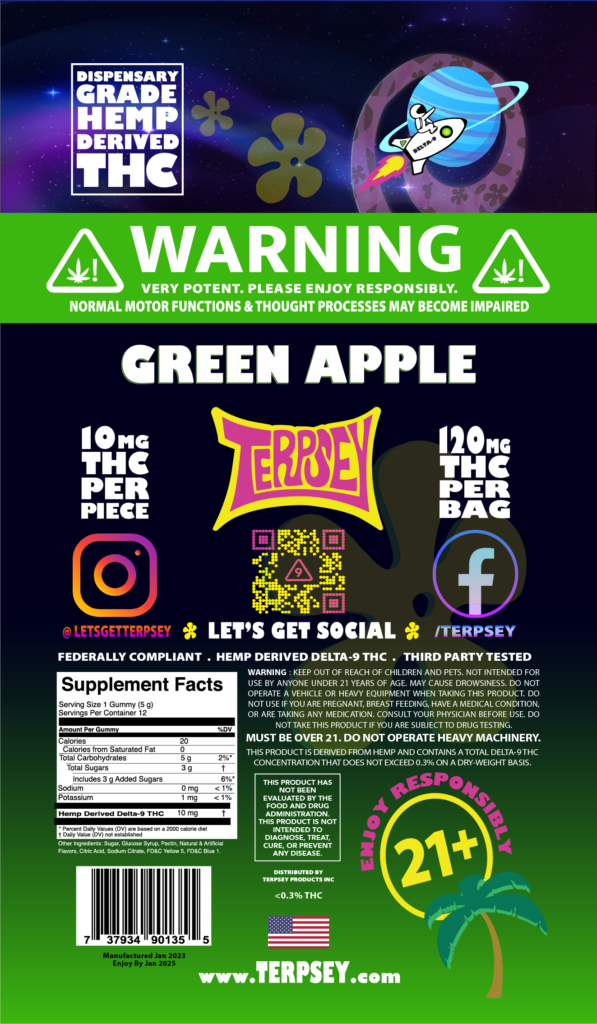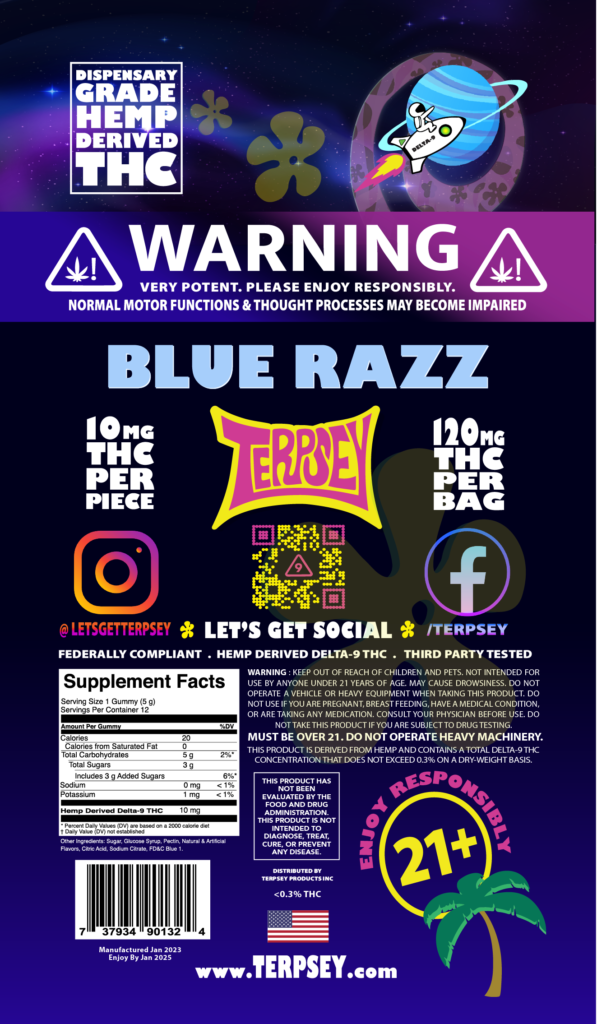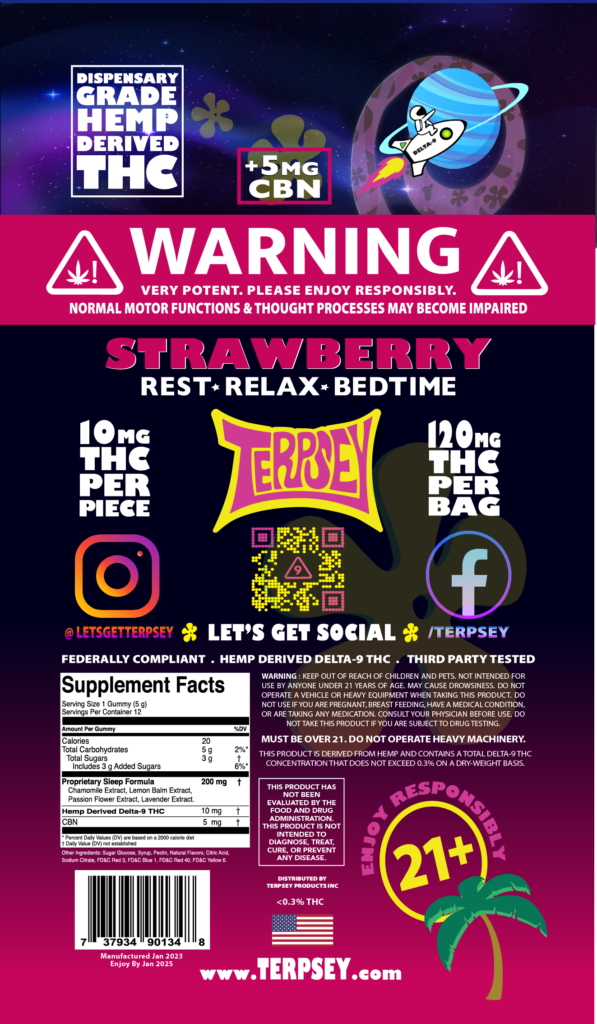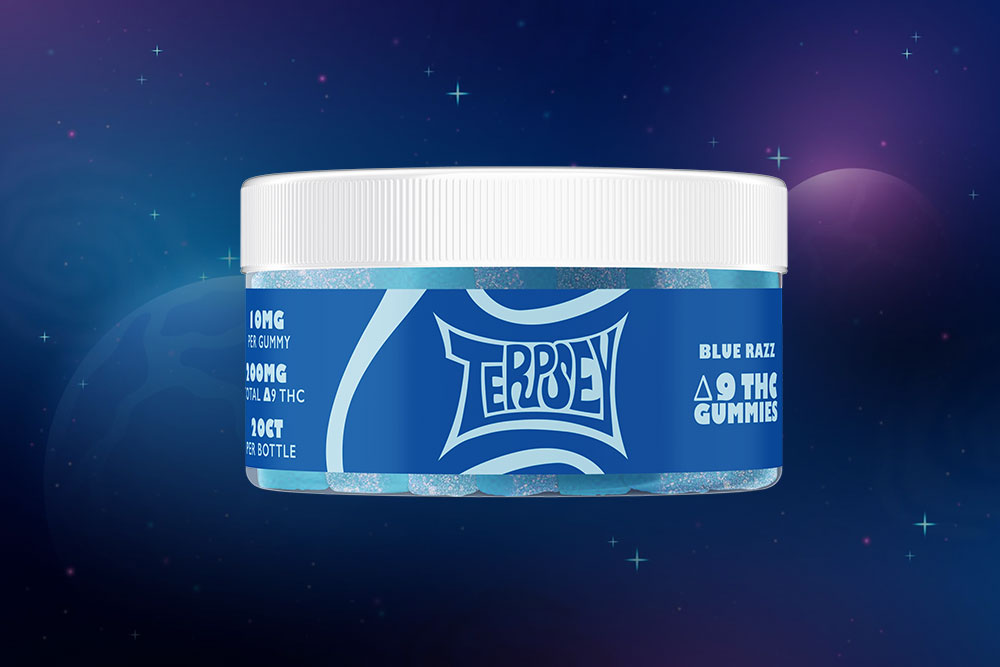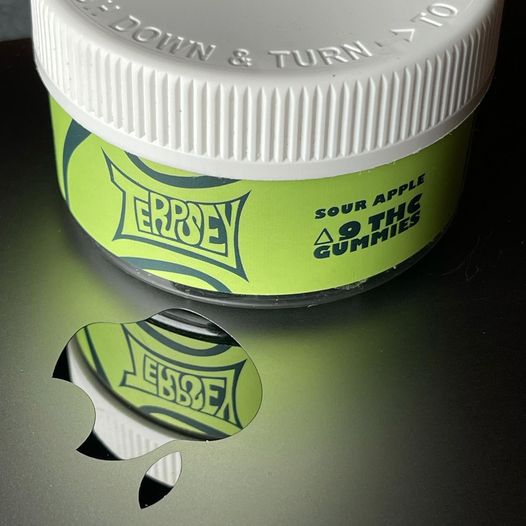What is Delta 9 THC?
When we talk about “THC”, we refer to delta-9-tetrahydrocannabinol. It is one of 100 different cannabinoid molecules found in cannabis plants. Delta-9-THC and trans-delta9-THC are additional names for THC. While it is present in hemp and marijuana, we deal with hemp-sourced THC products that are federally compliant.
THC stands out apart from other cannabis compounds due to its psychoactive feature. When ingested, it gives users a euphoric high. The feeling is predictable and well-tolerable when taken in moderate amounts. The high kicks in within minutes if smoked THC concentrates. But chewable edibles, such as THC gummies, have longer onset times. You can expect to feel their effects after about 30 to 60 minutes.
THC comes in various forms, with delta-8 THC being the most well-known. It originates from a process of natural transformation and is an analog isomer of delta-9 THC. In the course of oxidation and aging, delta-9 THC transforms into delta-8 THC. Carbon, hydrogen, and oxygen are among the elements that are present in both. The atomic configurations of each, however, differ. Compared to delta-9-THC, delta-8-THC has less potent psychoactive effects because it has a lower affinity for the CB1 receptor.
Likewise, we have other THC subtypes, such as delta-10, HHC, and THC-O. Some are naturally occurring variants, while others undergo critical laboratory processing for synthesis. Each of them has distinctive properties, benefits, and uses. However, among all these compounds, delta 9 THC is the most popular choice. It is a natural cannabinoid with enormous therapeutic potential to treat several medical ailments.
